COP26 and More Seeding of Energy-Climate Actions
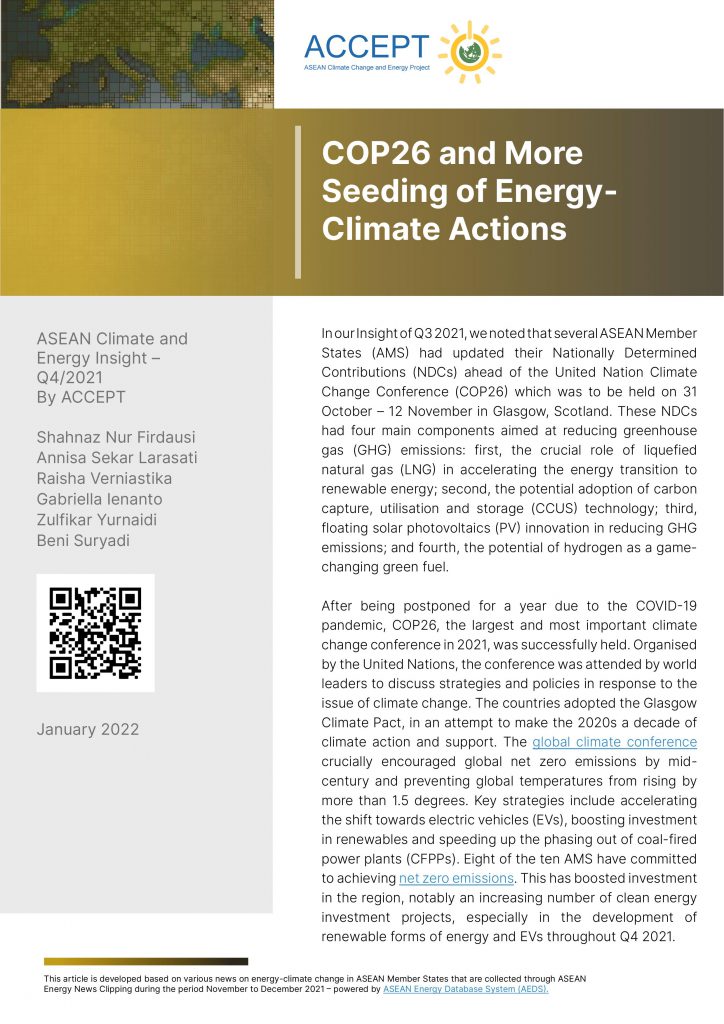
In our Insight of Q3 2021, we noted that several ASEAN Member States (AMS) had updated their Nationally Determined Contributions (NDCs) ahead of the United Nation Climate Change Conference (COP26) which was to be held on 31 October – 12 November in Glasgow, Scotland. These NDCs had four main components aimed at reducing greenhouse gas (GHG) emissions: first, the crucial role of liquefied natural gas (LNG) in accelerating the energy transition to renewable energy; second, the potential adoption of carbon capture, utilisation and storage (CCUS) technology; third, floating solar photovoltaics (PV) innovation in reducing GHG emissions; and fourth, the potential of hydrogen as a game-changing green fuel.
Against the Odds: Pursuing Another Chance for Green Recovery in ASEAN
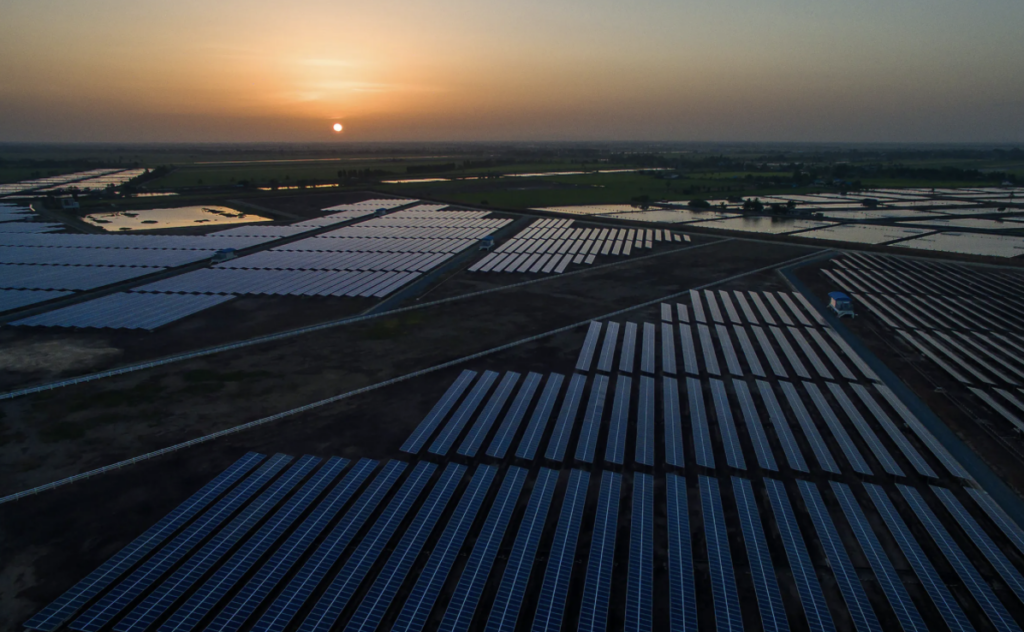
Southeast Asia countries have spent little of their COVID-19 recovery funds on sustainable development. There is still time to turn the pandemic into an opportunity.
News Highlights (January 2022)
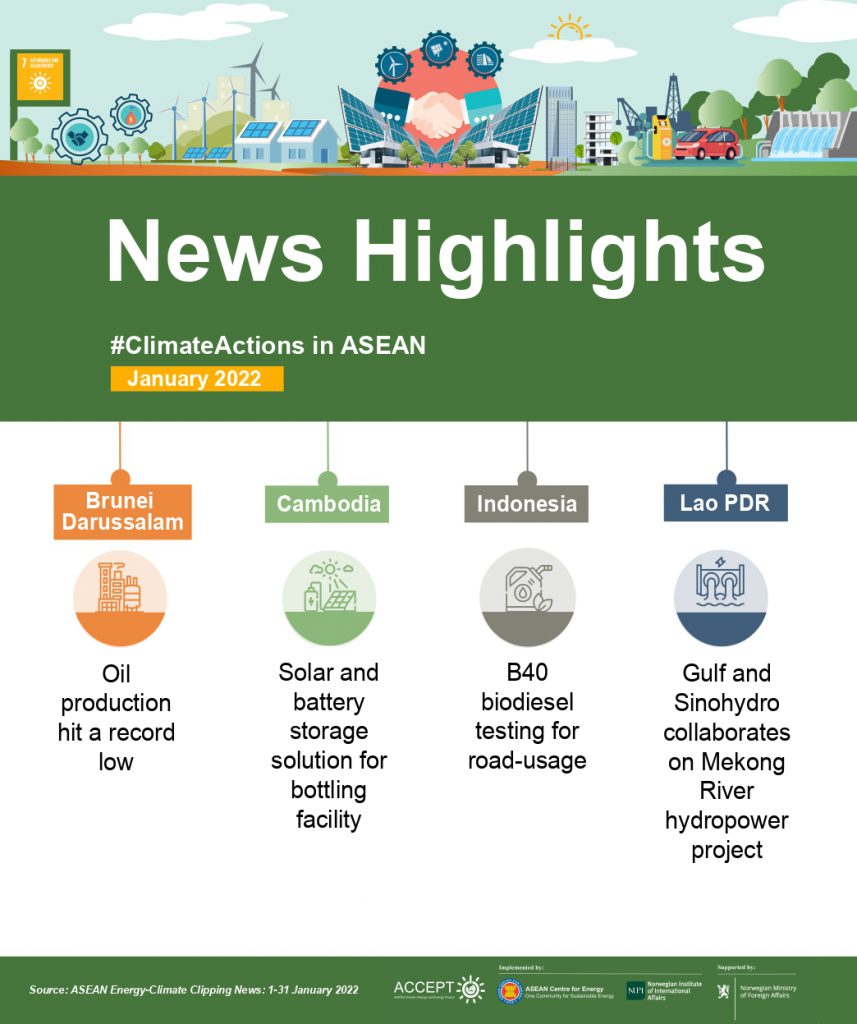
Renewable Energy Insights 2021
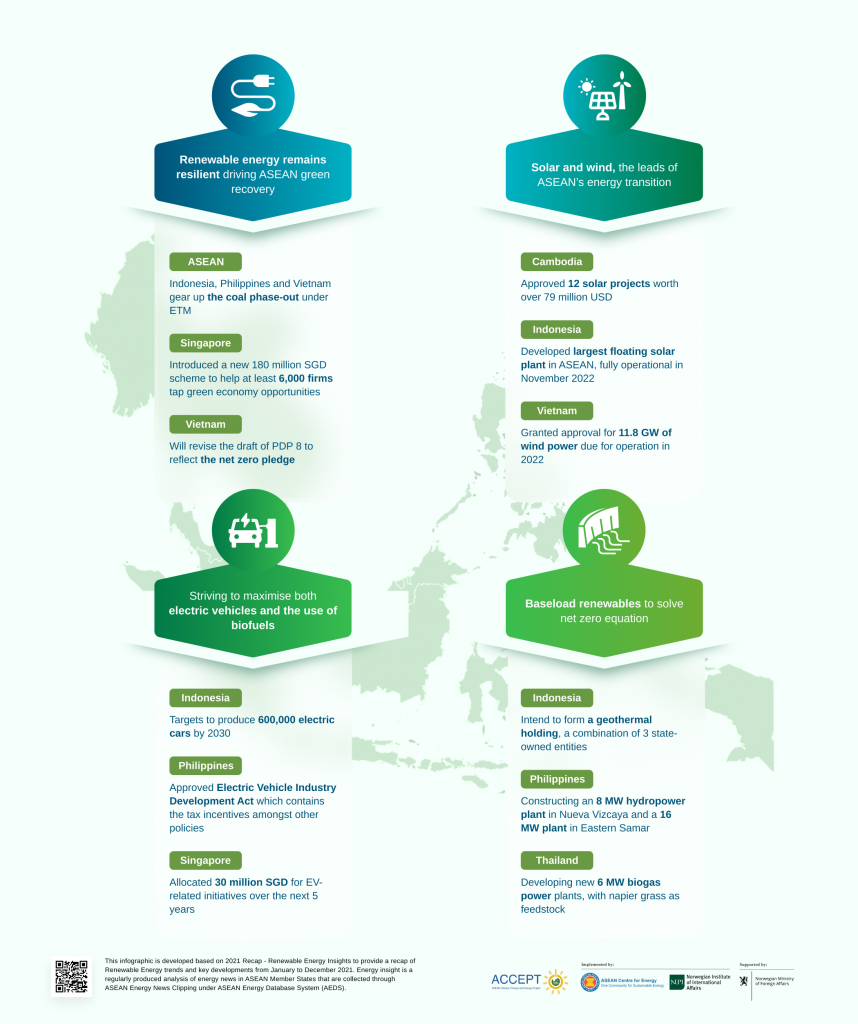
Oil and Gas Insights 2021
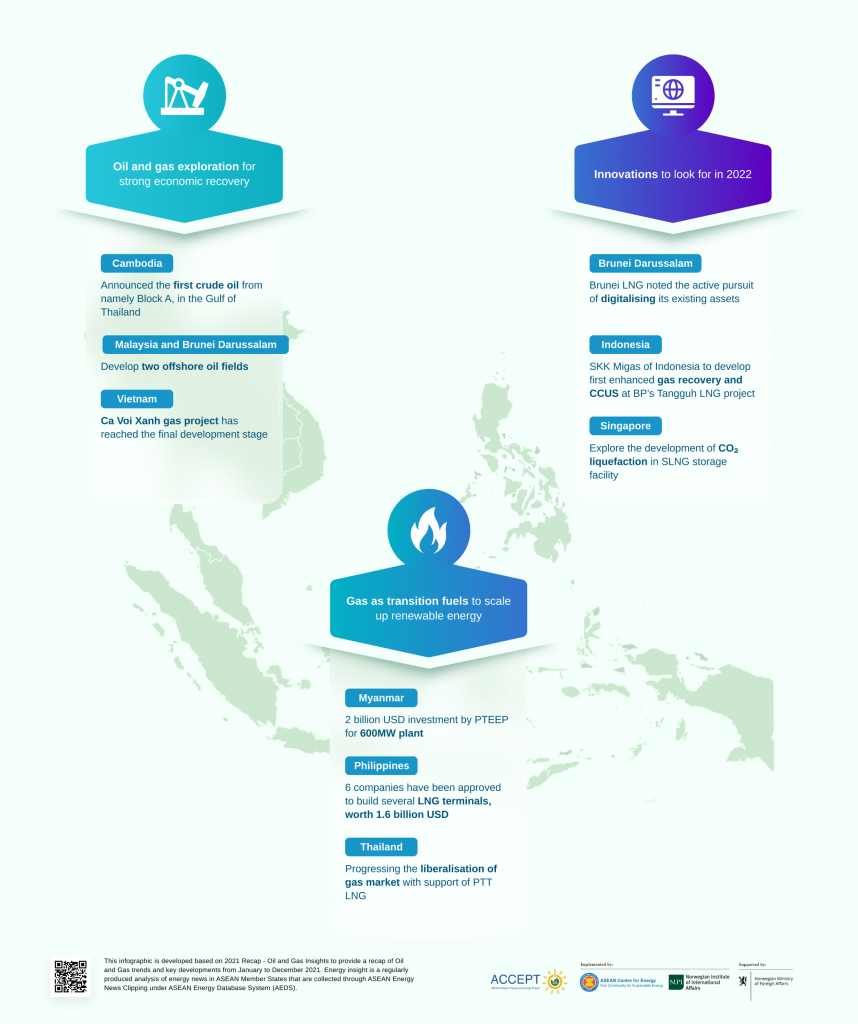
Electricity Insights 2021
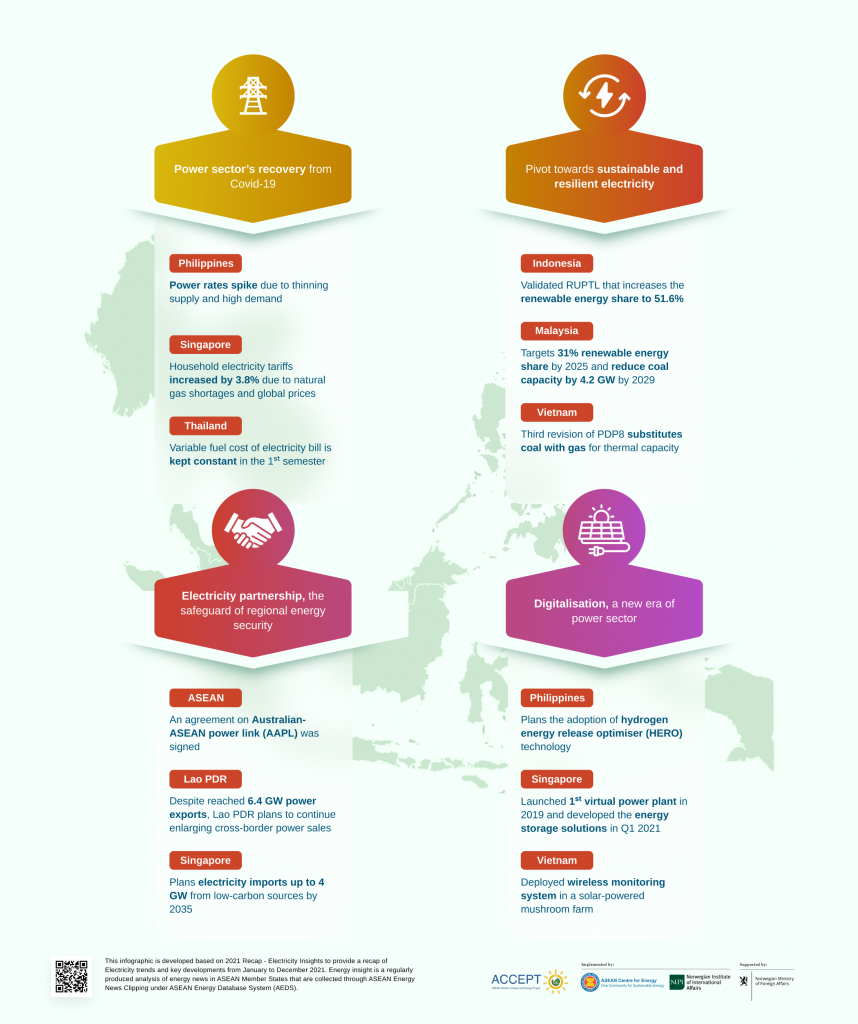
How Energy is Aiding ASEAN’s Post-Pandemic Recovery

The energy sector is in a good position to drive ASEAN’s recovery and its transition to a greener economy.Member states of the Association of Southeast Asian Nations (ASEAN) were in for a turbulent ride when COVID-19 first reared its head in 2019.
Guidelines for Developing Indicators to Track Action on Energy-Related Climate Change Mitigation Policies
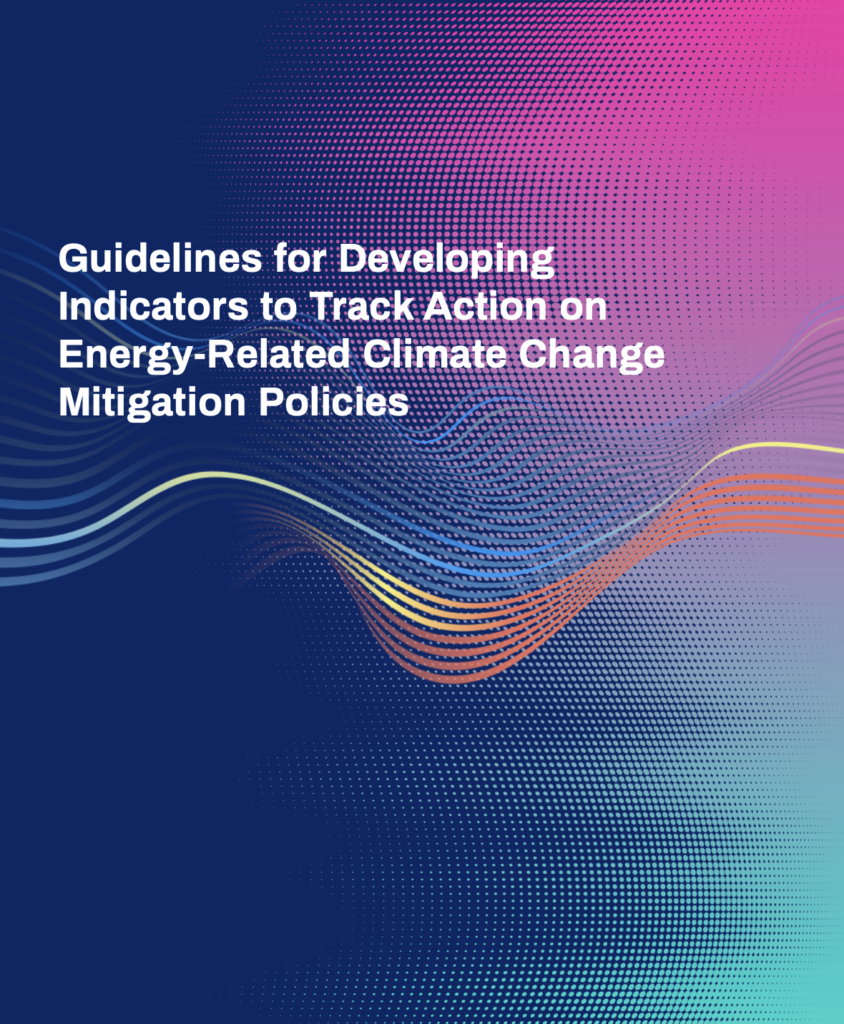
The world’s commitment to realising the Paris Agreement has resulted in the development of climate change mitigation policies relating to several sectors, including the energy sector. Enhancing the collection and collating
of energy statistics will help to improve the formulation, planning, execution, monitoring and outcomes assessment of the policies. To be successful, policies must be based on appropriate indicators and high-quality data. This report provides guidelines for creating good indicators that can be used to track action in the energy transition. By presenting international guidance on energy statistics used globally, best practices in energy-related
climate change evidence-based policies and case studies from the ASEAN countries, this publication aims to lay out the essential knowledge needed to equip the policy makers.











